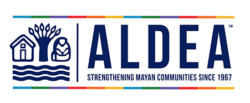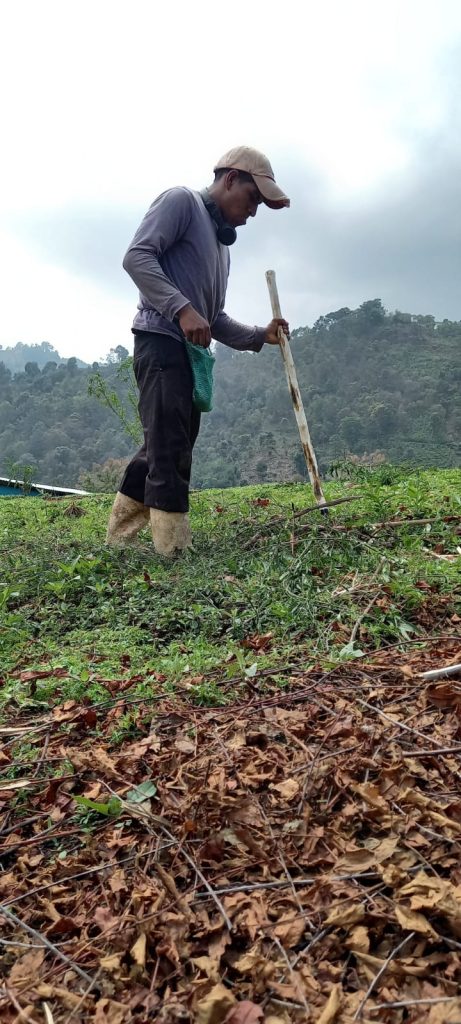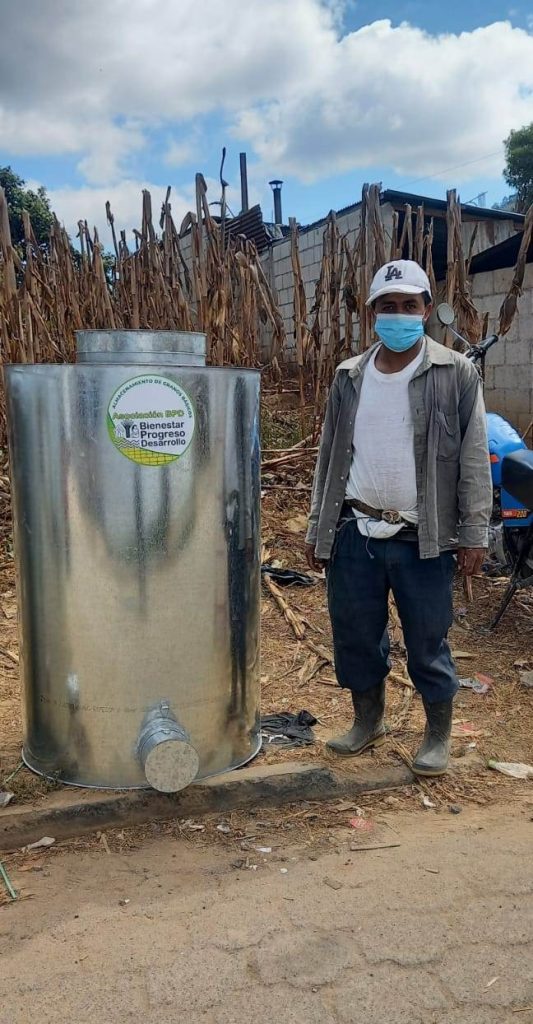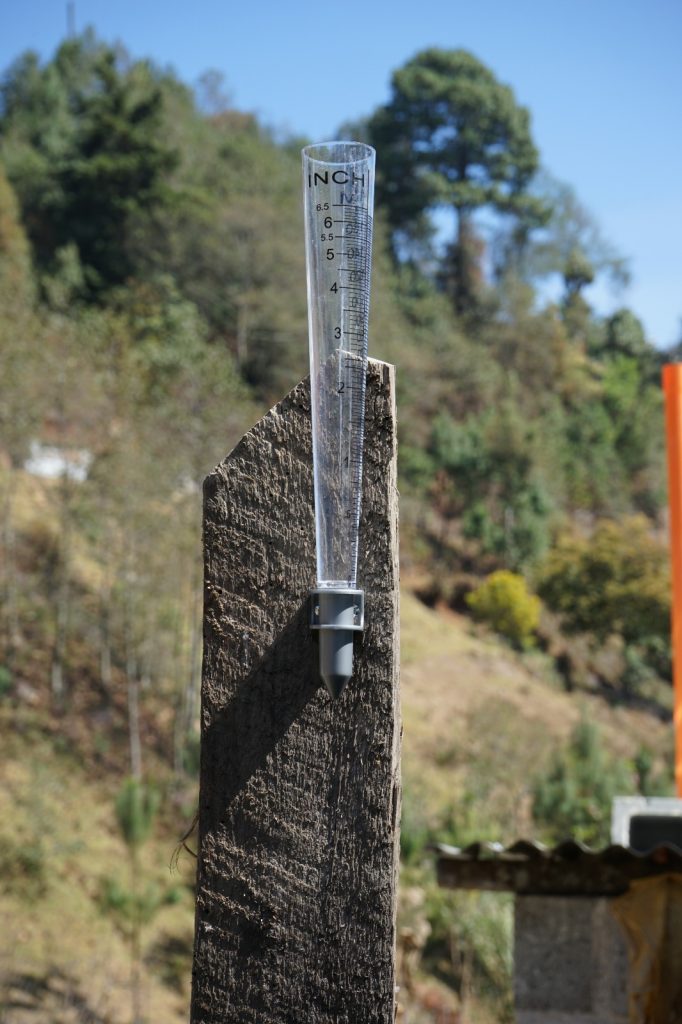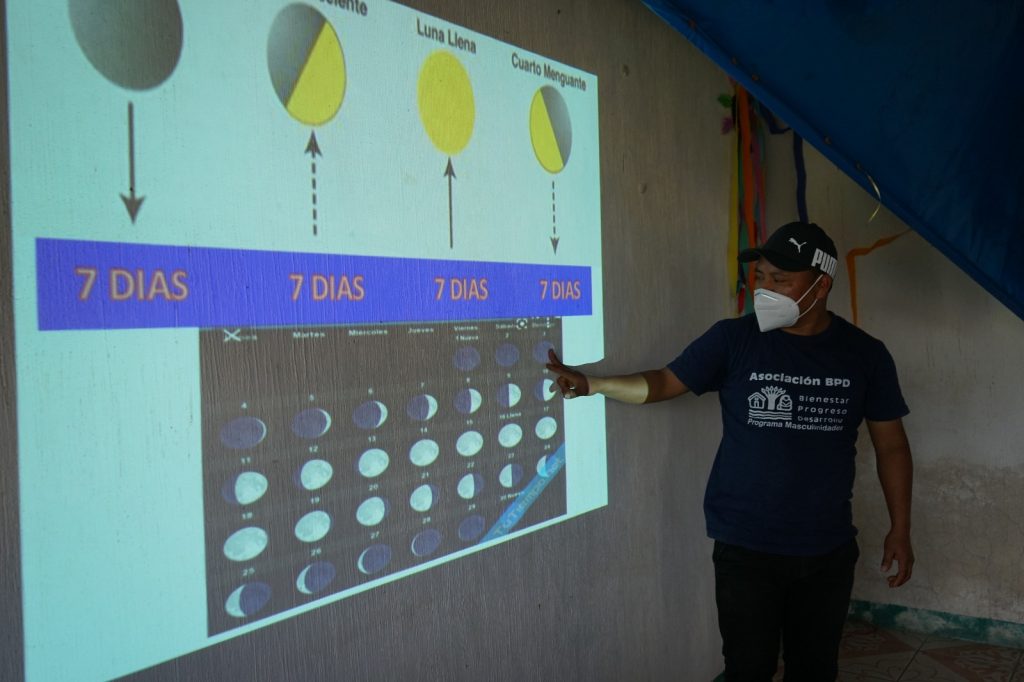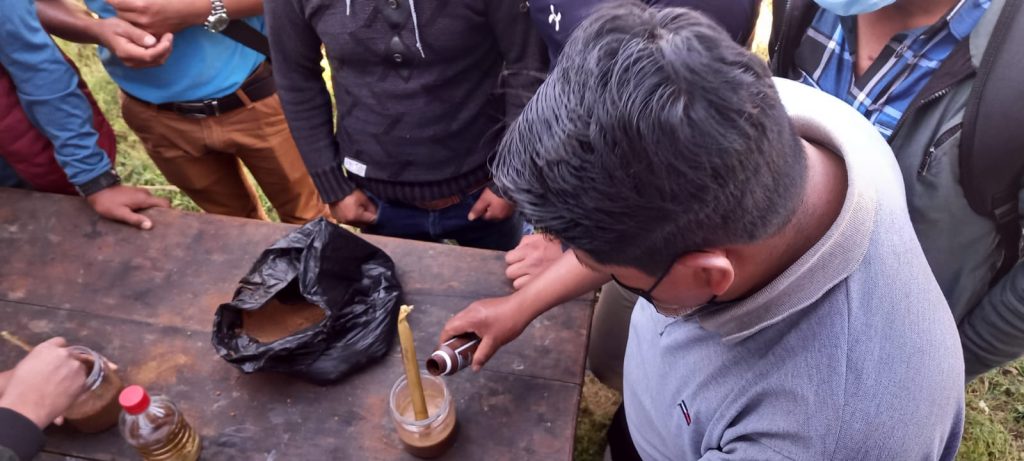The effects of climate change are increasingly being felt across the globe, with the impact being compounded by the COVID-19 pandemic, and ongoing economic volatility caused by armed conflicts. Guatemala is particularly vulnerable to prolonged droughts and extreme weather events like hurricanes brought on by climate change, and supply chain snags and soaring prices add another layer of pressure bearing down on the country’s population. ALDEA recognizes the need for action to bolster the resources, both material and experiential, available to Guatemalans to adapt to changing conditions and tackle these challenges with confidence. Participants in our partner organization ABPD’s agriculture program receive training in a wide variety of topics to develop key skills necessary to thrive in today’s complex circumstances. Participants learn to measure rainfall over time to inform their choices of when to plant their crops, which plants to choose, and how to plan for effective upkeep. They also receive training in traditional and sustainable agriculture practices that improve rather than degrade soil quality, increase crop diversity, and mitigate the risk of landslides and insufficient access to water. In addition, equipment is provided for the storage of basic grains to increase food security and potable water systems are built to ensure access to water. Informing participants of how to produce and use of organic fertilizers can also reduce the need for farmers to rely on imported artificial fertilizers for their crops. Successful and sustainable agriculture in our partner communities translates to better nutritional outcomes essential for a vibrant future.
